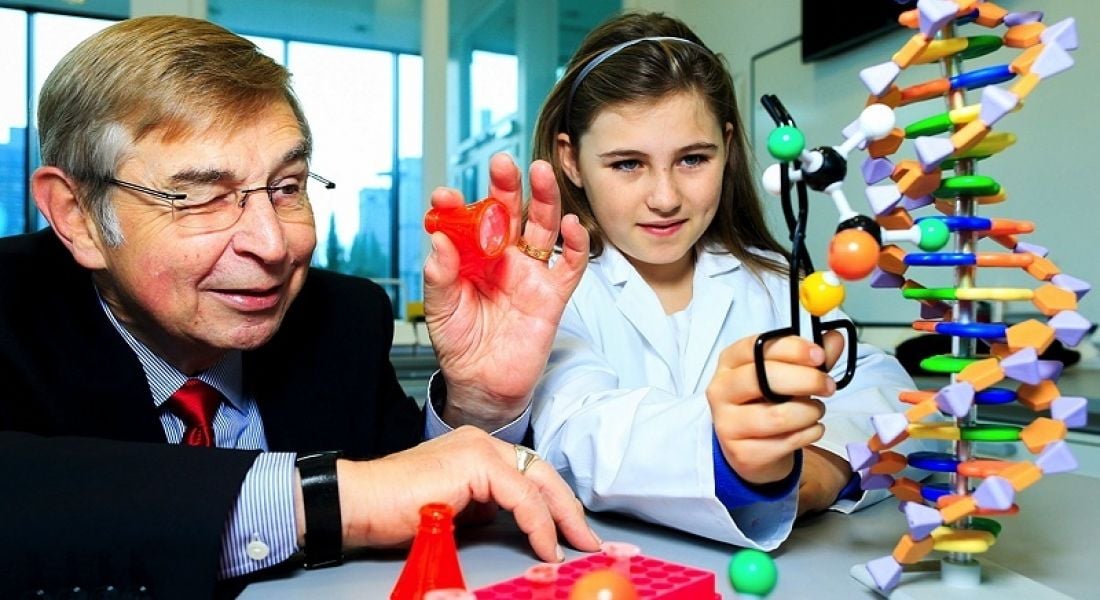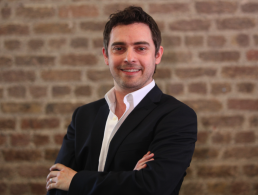DCU’s new campaign is focusing on challenges in education, healthcare and global resources, reports Claire O’Connell.
If you wanted to launch a campaign for the future, you could not choose a better day than 21 October 2015 – the date to which Marty McFly travelled in the Hollywood blockbuster Back to the Future II.
But the new campaign that Dublin City University launched today at The Helix has its sights set on a less fictional future, putting the focus on key challenges in areas such as healthcare and ageing, global resources, journalism and education.
Unveiling the fundraising drive, which seeks to raise €100m in philanthropic and corporate support as part of a larger €323m development programme, DCU president Prof Brian MacCraith described it as an important day in the short history of the university, which was established in 1980 and today ranks among the Top 100 young (where young means under 50 years old) universities in the world.
“This is about the strategic advancement of the university in research and innovation, in teaching and learning and in student development,” he told Siliconrepublic.com.
Changing health
One of the biggest opportunities — and challenges — that we face as a species is that we are living for longer, notes Professor Christine Loscher, who leads the Centre for Healthy Ageing (CHAnge), one of the campaign initiatives at DCU.
“Because we are living longer, the incidence of chronic disease is increasing and that presents challenges, including the rising cost of healthcare and the risk of developing multiple diseases,” she says.
Education, research and technology have important roles to play in tackling those challenges, she adds, referring to programmes at DCU such as MedEx, which runs group exercise sessions for people with cardiovascular disease, respiratory conditions, diabetes and during cancer recovery, and PATHway, which is developing an online programme that can provide feedback and social interaction for people who exercise at home.
“Empowering people to play a part in their own healthcare is a really key objective here, but to do that you need to integrate psychology, behavioural science, ICT, analytics, sensors, sports science and an understanding of a disease itself,” she says. “So the CHAnge project will be a mechanism for enabling those researchers to come together, and ultimately we want to create a society of healthy ageing.”
Water, water everywhere
Water is another global challenge in DCU’s sights, and Prof Fiona Regan, who directs the DCU Water Institute, describes how the university wants to train PhD researchers working on water across various disciplines including business, finance and sustainability, engineering and sciences, ethics and communications.
Individual projects are using nanotechnology to treat wastewater, harnessing sensors and analytics to prevent floods, monitoring beaches for microbes to ensure safe bathing and developing low-cost disinfection for drinking water in poorly-resourced areas.
Future media and sport
The changing natures of media and sport are also among the 21 areas in DCU’s campaign list, and the Institute for Future Media and Journalism (FuJo), which is directed by Dr Jane Suiter, will explore how data and technology can enable quality reporting. “It is recognising that the future of journalism will have a strong data and technology component to it,” says MacCraith. “We want to shape the future of journalism by creating a thought leadership and discussion forum to explore how data analytics, digital technologies and the core principles of journalism will combine to provide a sustainable future in media.”
Sport is getting a boost too with the GAA National Education and Research Centre at DCU, which will use technology to analyse and improve player performance and explore issues around player welfare, coaching and even refereeing, according to MacCraith. “It will be a national resource for every GAA club in every county on the island of Ireland,” he says.
It starts with education
Education is also set to feel the impact through the new Institute of Education at DCU, Ireland’s first university faculty of education.
“It is about preparing a new cohort of teachers for Ireland’s future, teachers that have come through a research-intensive environment, including in key areas such as digital learning, STEM education and assessment, all key elements of the digital schools strategy,” says MacCraith. “These teachers will emerge at the cutting edge of knowledge in these areas and carry that with them into schools.”
Keynote speaker at today’s launch, futurist Dr Peter Cochrane, acknowledged the importance of education to prepare for a world where artificial intelligence is coming to the fore.
“Education has to change,” he said. “It was created during the industrial revolution to churn out fodder for the machine, and we now need a different way of doing things… we have to think differently.”
Cochrane wants to see a model that enables people to learn any place and any time, with less focus on feats of memory and more on thinking through problems.
“Recalling facts and figures and processes is not a measure of intelligence, my laptop can do that — problem-solving, creativity, that is where intelligence lies. The rate of education change has got to be linked to industry, it has got to be linked to society and we have to try to get ahead of the change and not be in the wake.”
Look to the future
With one-quarter of the €100m funding already raised in the ‘quiet phase’ of DCU’s campaign, MacCraith is confident that the remainder is achievable.
And the date couldn’t go without a nod to McFly. “It’s an amazing coincidence, I wish we could take credit for it,” says MacCraith. “But it speaks to envisioning the future and that is what this university is targeting, not resting on its laurels but moving forward to make an impact nationally and internationally and shaping the future through our research and our graduates.”




